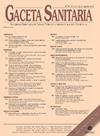Gestionar futuras pandemias en un contexto urbano: un desafío para la salud pública
IF 1.5
4区 医学
Q3 HEALTH CARE SCIENCES & SERVICES
引用次数: 0
Abstract
The COVID-19 pandemic posed a challenge for which many countries and cities were unprepared. Cities, due to their physical and social environments, are particularly vulnerable to the effects of health crises. However, there are no specific preparedness and response plans for health crises in cities. Four years after the onset of the pandemic, it is crucial to identify the achievements and areas for improvement in Barcelona. For this, we used four elements: 1) crisis recognition, 2) crisis management, 3) communication and policy, and 4) prevention of future crises. Although the crisis was acknowledged, there was also a lack of preparedness to effectively address and respond to it, primarily due to the historical underfunding of public health resources. However, throughout the three years of the pandemic, notable efforts have been made in key aspects of management: the development of new technological platforms for information systems and the improvement of intersectoral coordination. New communication formats have also been developed for both internal and external channels. These elements are essential tools that require improvement to face future pandemics. The focus now shifts to integrating the lessons learned into preparedness and response plans to address future public health emergencies with a comprehensive and equitable approach in an urban setting, marking an evolution in public health response strategies.
在城市环境中管理未来的流行病:公共卫生挑战
2019冠状病毒病大流行带来了许多国家和城市毫无准备的挑战。城市由于其物质和社会环境,特别容易受到卫生危机的影响。然而,对于城市中的卫生危机,没有具体的防范和应对计划。在该大流行病爆发四年之后,确定巴塞罗那取得的成就和有待改进的领域至关重要。为此,我们使用了四个要素:1)危机识别,2)危机管理,3)沟通和政策,4)预防未来的危机。虽然承认了这场危机,但也缺乏有效处理和应对危机的准备,这主要是由于公共卫生资源历来供资不足。然而,在大流行病的三年里,在管理的关键方面作出了显著的努力:为信息系统开发新的技术平台和改进部门间协调。还为内部和外部渠道开发了新的通信格式。这些要素是需要改进的基本工具,以应对未来的流行病。现在的重点转向将吸取的经验教训纳入防范和应对计划,以便在城市环境中以全面和公平的方式应对未来的突发公共卫生事件,这标志着公共卫生应对战略的演变。
本文章由计算机程序翻译,如有差异,请以英文原文为准。
求助全文
约1分钟内获得全文
求助全文
来源期刊

Gaceta Sanitaria
医学-公共卫生、环境卫生与职业卫生
CiteScore
4.10
自引率
5.30%
发文量
80
审稿时长
29 days
期刊介绍:
Gaceta Sanitaria (Health Gazette) is an international journal that accepts articles in Spanish and in English. It is the official scientific journal of the Sociedad Española de Salud Publica y Administración Sanitaria (Spanish Society of Public Health and Health Administration) (SESPAS).
The Journal publishes 6 issues per year on different areas of Public Health and Health Administration, including:
-Applied epidemiology-
Health prevention and promotion-
Environmental health-
International health-
Management and assessment of policies and services-
Health technology assessments-
Health economics.
The editorial process is regulated by a peer review system. It publishes original works, reviews, opinion articles, field and methodology notes, protocols, letters to the editor, editorials, and debates.
 求助内容:
求助内容: 应助结果提醒方式:
应助结果提醒方式:


